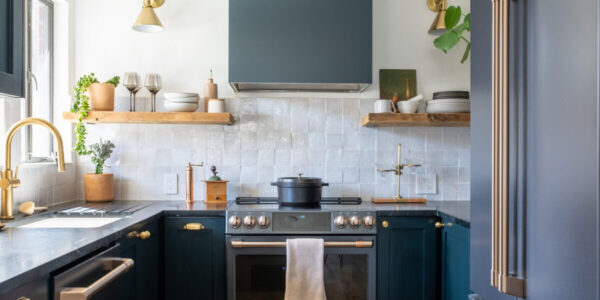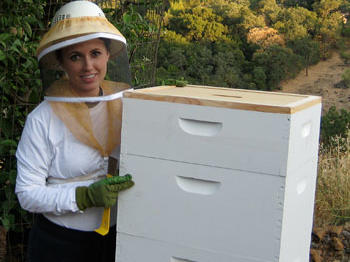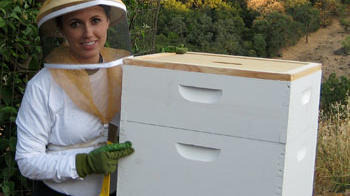
Urban beeyards

Reader Karl Arcuri sent us a question last week: I live in Austin and I’m thinking about starting an urban hive. I’ve been following your blog, and I’m curious on how big your yard is where you keep your hives?
Team Bee member Brianne McElhiney:Here at Sunset, we are fortunate to have a campus that is about 10-12 acres, but the beekeepers guild that I belong to says that you only need about 10 sq. ft.to keep a hive. Recently, I have heard of people in San Francisco raising hives on top of their apartment buildings, and one of the men in my beekeepers guild keeps them at his condo complex.
You just want to be sure that there is a large enough food source for them in your area. Typically your bees will stay within a mile radius, so as long as there are plenty of flowering plants in your neighborhood, the bees will stay around. I would also recommend that you contact your local beekeepers guild (in Austin one guild is the Capital Area Honeybee Stewards) and perhaps attend a meeting. The members are usually very knowledgeable and more than willing to answer any questions you may have about raising bees.Brianne McElhiney (shown in photo), assistant to the editor-in-chief, keeps beesat her home in the South Bay, as well as working on Sunset’s Team Bee.
Team Bee member Margaret Sloan: Our beeyard is in the back of our nursery area (bees like privacy). We keep our hives far enough apart that we can still work between them,but commercial beekeeps stack them on pallets with little or no room inbetween hives. It’s up to you.
Before you buy bees, be sure to check your city’s municipal code or call the city to find out what the restrictions are. Some cities are fairly restrictive when it comes to beekeeping, and some outlaw beehives altogether, although that is beginning to change.
Update: Since Karl sent us his question, he’s emailed us with the news that he’s started beekeeping lessons with the owner of Round Rock Honey, and hopes to start his hive in August.

